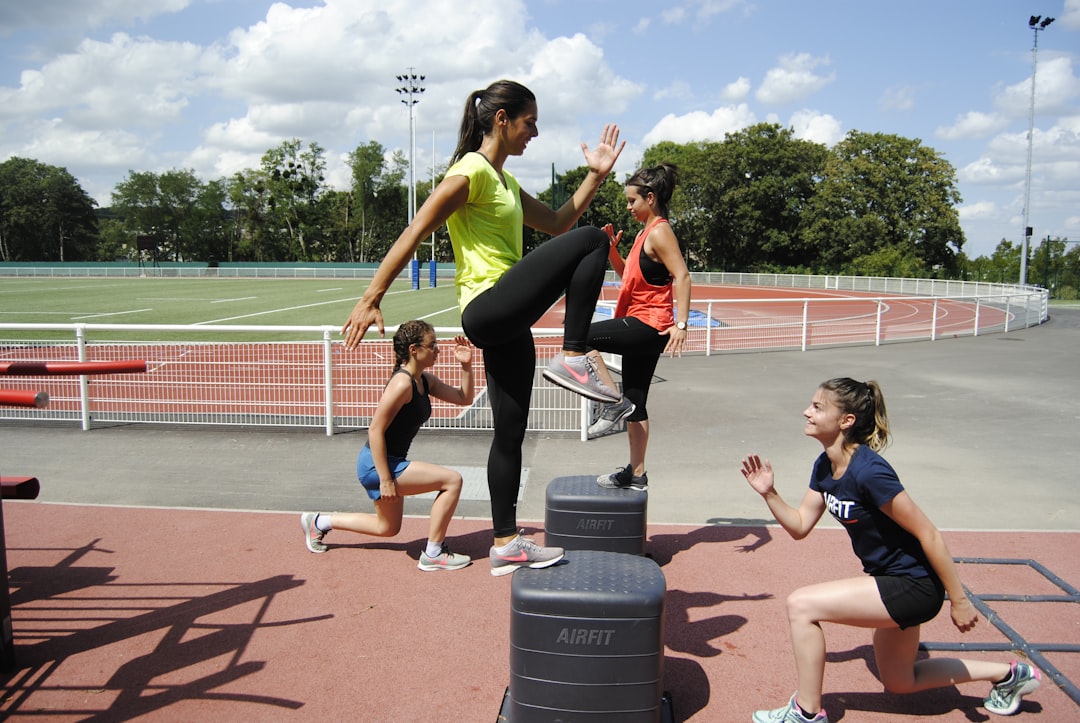For athletes, nutrition is just as crucial as training when it comes to maximizing performance, improving endurance, and enhancing recovery. Whether you’re a professional athlete or someone who exercises regularly, fueling your body with the right nutrients can make a significant difference in your training outcomes and overall health.
In this post, we’ll explore the importance of proper nutrition for athletes, focusing on key nutrients, meal timing, and strategies to optimize performance and recovery.
The Role of Nutrition in Athletic Performance
Exercise places significant demands on the body, and nutrition helps meet those demands by:
-
Providing energy for training and competition
-
Supporting muscle growth and repair
-
Enhancing hydration and preventing fatigue
-
Boosting immune function to reduce the risk of illness or injury
Nutrition can also help athletes:
-
Recover faster post-workout
-
Reduce the risk of injury and overtraining
-
Maintain a healthy body composition (e.g., lean muscle mass vs. body fat)
Key Nutrients for Athletes
🍞 1. Carbohydrates: The Primary Fuel Source
Carbohydrates are the body's main source of energy during physical activity. Muscles rely on glycogen (stored form of glucose) for fuel, especially during high-intensity or prolonged exercises.
Sources: Whole grains, fruits, vegetables, legumes, starchy foods like potatoes and pasta
Recommendation: Athletes should consume 3–7g of carbohydrates per kilogram of body weight per day, depending on the intensity of training.
💡 Pre-Workout Tip: Eat a carbohydrate-rich meal 2–3 hours before exercise to ensure glycogen stores are topped off.
🍖 2. Proteins: Building Blocks for Muscle Repair
Protein is essential for repairing and rebuilding muscle tissues that are broken down during exercise. It also plays a role in immune function and enzyme production.
Sources: Lean meats, fish, poultry, eggs, dairy, legumes, tofu, quinoa, nuts
Recommendation: Athletes should consume 1.2–2.0g of protein per kilogram of body weight per day to support muscle growth and recovery.
💡 Post-Workout Tip: Consume a high-protein meal or snack within 30–60 minutes of exercise to support muscle repair.
🧈 3. Fats: Long-Lasting Energy and Hormonal Support
While carbohydrates provide quick energy, fats are an important source of long-lasting energy, especially for endurance athletes. Healthy fats also support cellular function and hormone production, which are crucial for recovery and overall health.
Sources: Avocados, nuts, seeds, olive oil, fatty fish (salmon, mackerel), coconut oil
Recommendation: About 20–35% of an athlete’s total daily calorie intake should come from fats, with a focus on unsaturated fats.
💡 Tip: Incorporate healthy fats into meals to maintain steady energy levels during longer training sessions.
💧 4. Hydration: Staying Properly Hydrated
Dehydration can impair performance, increase the risk of injury, and delay recovery. Staying hydrated ensures that your body can regulate temperature, transport nutrients, and eliminate waste effectively.
Sources: Water, sports drinks (for electrolyte replenishment), fruits, vegetables (high-water content like watermelon, cucumber, oranges)
Recommendation: Drink at least 8–10 cups of water per day, and adjust based on training intensity and climate.
💡 Tip: Drink water before, during, and after exercise. For intense workouts lasting longer than an hour, consider electrolyte-rich drinks to replace lost sodium, potassium, and magnesium.
🧃 5. Vitamins and Minerals: Supporting Overall Function
Vitamins and minerals are essential for energy production, muscle function, immune health, and recovery.
Key Vitamins and Minerals:
-
Vitamin C: Supports immune function and reduces oxidative stress
-
B Vitamins: Aid in energy production and red blood cell formation
-
Iron: Vital for oxygen transport in the blood
-
Magnesium: Supports muscle function and recovery
-
Calcium and Vitamin D: Important for bone health
Sources: Fruits, vegetables, dairy, nuts, seeds, whole grains, lean meats
Recommendation: Focus on a varied and balanced diet to meet daily micronutrient needs, and consider supplements if you have specific deficiencies.
Meal Timing for Athletes
Meal timing plays a critical role in fueling performance and recovery. Here’s how to optimize your nutrition throughout the day:
1. Pre-Workout Meal
A well-balanced meal 2–3 hours before exercise helps ensure you have enough fuel for your workout.
Example: Oatmeal with banana and a scoop of protein powder, or a whole-grain sandwich with lean turkey and veggies.
2. During Workout
For exercise lasting longer than 60 minutes, refueling during activity is crucial to maintain energy levels.
Example: Sports drinks, energy gels, or fruit to replenish glycogen stores and electrolytes.
3. Post-Workout Recovery
Recovery is when your body repairs and builds muscle. Consuming a combination of carbohydrates and protein within 30–60 minutes after exercise maximizes muscle recovery.
Example: A protein shake with banana or a chicken salad with whole-grain bread.
Common Challenges and Strategies
🍽️ 1. Loss of Appetite After Intense Workouts
If you’re not feeling hungry post-workout, try liquid meals like smoothies or protein shakes that are easier to consume.
🏃♂️ 2. Endurance Athletes and Depletion
Long-distance athletes may struggle with carbohydrate depletion. Consider carb-loading strategies (increasing carbs before a race or event) to maximize glycogen stores.
🏋️♀️ 3. Balancing Weight Goals with Performance
Athletes focused on weight management may find it challenging to balance training with maintaining a healthy body composition. Work with a nutritionist to develop a customized plan that promotes both fat loss (or maintenance) and muscle gain.
Final Thoughts
Nutrition is the foundation of athletic performance and recovery. By focusing on the right balance of carbohydrates, proteins, fats, vitamins, and minerals, athletes can fuel their bodies for peak performance, speed up recovery, and minimize the risk of injury.
Remember that nutrition should be tailored to the individual. Factors like training intensity, duration, goals, and specific needs should guide your dietary choices.
Stay hydrated, eat for energy, and refuel after every workout to ensure your body is always primed for your next training session. A little planning and mindful eating can make a significant difference in your athletic journey.
Want to learn more about sports nutrition, meal planning, and recovery strategies? Subscribe to our blog for weekly tips and insights!

Comments
No comments yet. Be the first to comment!
You must be logged in to comment. Login